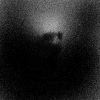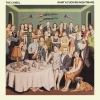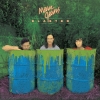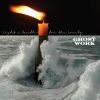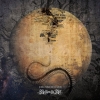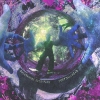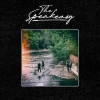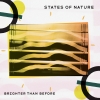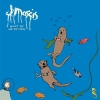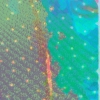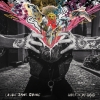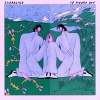Gig Reviews
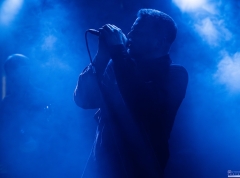
Hamferð
Pumpehuset, Copenhagen, DEN - 24/4
Album Reviews
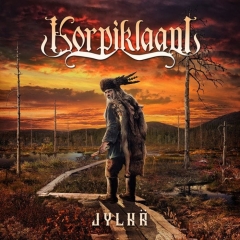
Korpiklaani
Jylhä
Written by: AP on 27/10/2021 19:57:59
When I was younger and taking my first steps into the realm of metal music, I remember my countrymen in Korpiklaani being considered a sort of gimmick band with little value beyond providing drunken sing-songs for the late hours at various metalhead get-togethers. Many of the Lahti-born ensemble’s older songs are centered around the themes of alcohol and drinking, and the music videos for them also establish an aura of clowning around the band. But fortunately, Korpiklaani has aged look good wine, to the extent that it almost felt like a second coming when they released the critically acclaimed “Manala” in 2012. Indeed, while the drinking songs of old were eventually reprised on their 2015 album “Noita”, it felt much more mature thanks to vocalist Jonne Järvelä’s taking inspiration from the meter and rhyme of olde Finnish folklore for both his lyricism and his vocal style. It is a fantastic album and I have often returned to it — not least in the wake of 2018’s “Kulkija”, which was a bitter disappointment in comparison. I had been hoping it was an odd mishap in this second era of Korpiklaani, and as such, when this latest offering “Jylhä” (for which there is no good English translation — it is an esoteric term for describing the nature of a mountain) was announced, my hopes for it were high.
The opening track “Verikoira” does not arouse much optimism. It is easy to deduce from it a desire to write a progressive piece of music, but its execution is too haphazard and chaotic to deliver on that ambition. The rhythm, and even the very style of the track changes so often that it ends up sounding incoherent and confusing, which in turn leaves me fearing the worst for the 13 songs still come. But lo and behold: as soon as the following “Niemi” kicks it, those concerns swiftly evaporate, with Sami Perttula’s accordion taking on that familiar melancholy character, the drums of newest member Samuli Mikkonen entering a gallop, and Järvinen serenading us with a litany of masterful end- and pararhymes that explore the infamous Lake Bodom murders — an endless source of inspiration for Finnish metal musicians. This song is another testimony to the fact that over the last decade, Korpiklaani have been perfecting the art of writing folk metal that is elegant rather than frivolous, brooding rather than entertaining. Indeed, the first half of the record is riddled with spellbinding moments to the extent that it is difficult to pick the standout tracks amongst. “Leväluhta” endears with its reggae instrumentals and a stunning example of how to harness the endlessly abundant vocabulary of the Finnish language into a chorus that is as poetic as it is catchy. “Mylly”, Tuuleton” and “Sanaton maa” all enlist the power of fairytales and legends to offer wistful ruminations on life’s many lessons, while “Kiuru” delivers the heaviest material on the album, emotively as well as instrumentally, laced with beautiful violin soliloquies by Tuomas Rounakari. And finally, “Miero” slows things down for a fretful, doom ridden ballad in which Perttula’s skilful accordion contributions arrive at the forefront once again.
Common to all of the tracks is their staying power, which arises not just from their composition or the strength of their choruses, but also from Järvelä’s penchant for transforming words into melodies. This is why it is not imperative (though it does enrich the experience) to understand Finnish in order to appreciate Korpiklaani’s music, which has been written exclusively in their native tongue since the aforementioned “Noita”. The atmosphere and feelings elicited by their music are universal in their appeal, providing a window into the musical and folkloric traditions of Finland through a metallic filter. I know this because I have been told so by countless non-Finnish people, and seen even more of them raise their horns and join in on those gang cries of “Lai!” that are endemic to the country’s folk metal lyricism.
Once “Miero” has drawn to conclusion, however, the question does arise: was it necessary to distill an hour’s worth of material into this album? Excepting the swaggering “Huolettomat” and the staple drinking anthem that is “Pidot”, the remainder of “Jylhä” pales in comparison to the tour de force described in the previous paragraphs, with especially the ambitious closing piece “Juuret” showing some of the same symptoms as the opener “Verikoira” in terms of the six musicians not really finding the right transitions to make the different pieces work together. But even with these weaker tracks weighing down on the tail end of the record, “Jylhä” is hard to criticise overall and actually emerges as one of the finest albums this Lahti-based collective has released to date. As far as my personal ranking goes, it is right up there with “Noita” — a modern and mature take on the folk metal genre that nonetheless packs enough festive touches to ensure Korpiklaani’s legendary live performances will not be tamed.
Download: Niemi, Leväluhta, Tuuleton, Sanaton maa, Kiuru, Pidot
For the fans of: Alestorm, Eluveitie, Finntroll, Krampus
Listen: Facebook
Release date 05.02.2021
Nuclear Blast
 Twitter
Twitter Facebook
Facebook